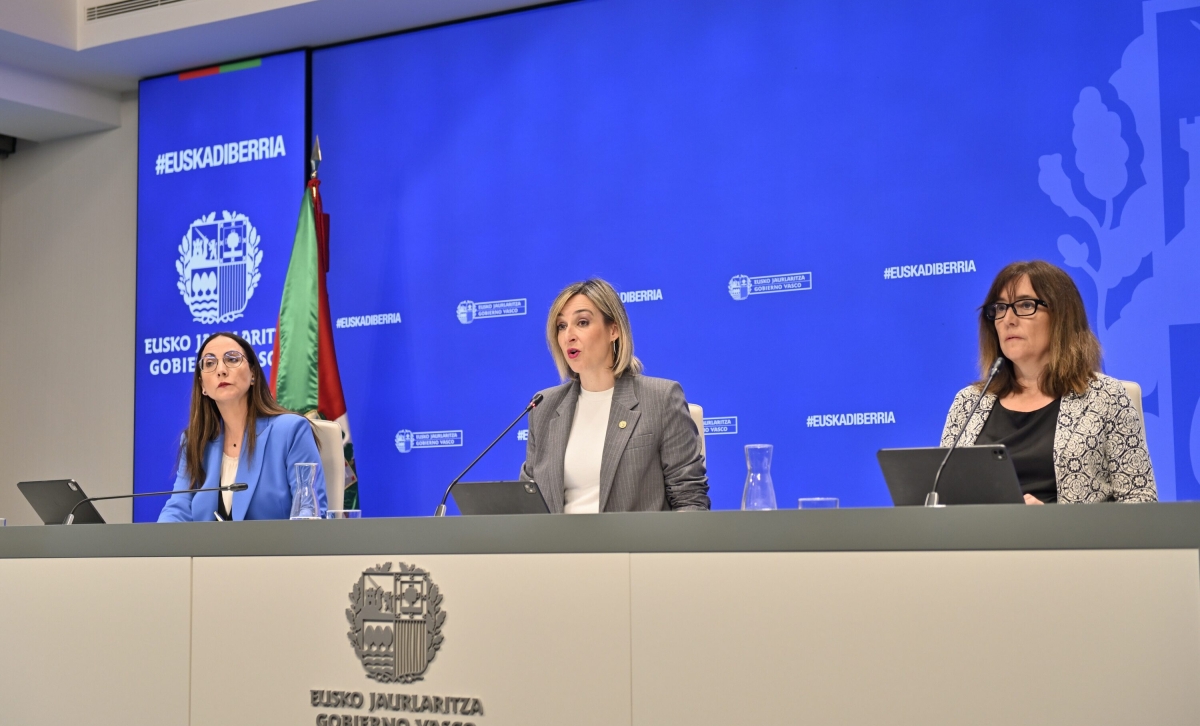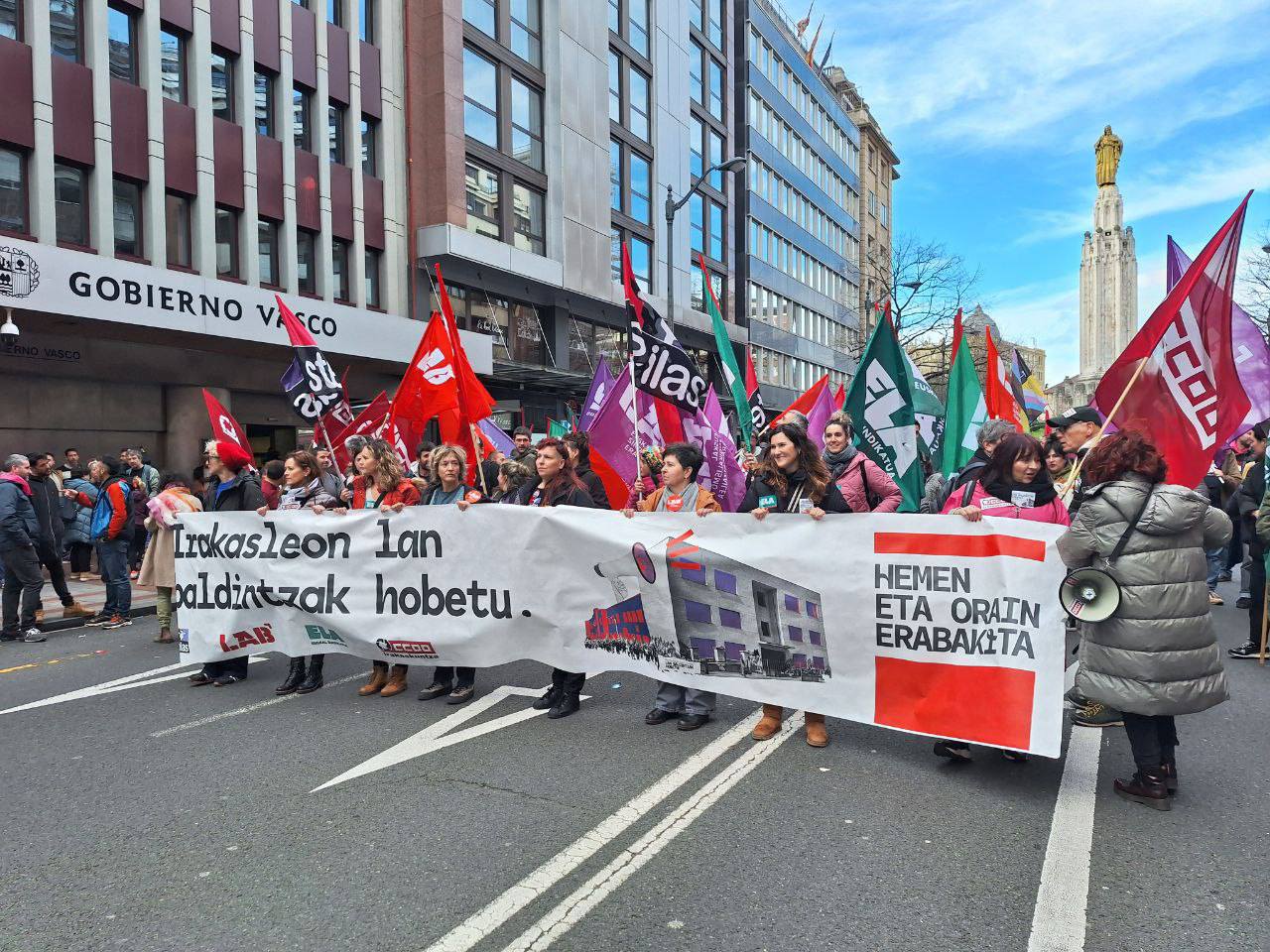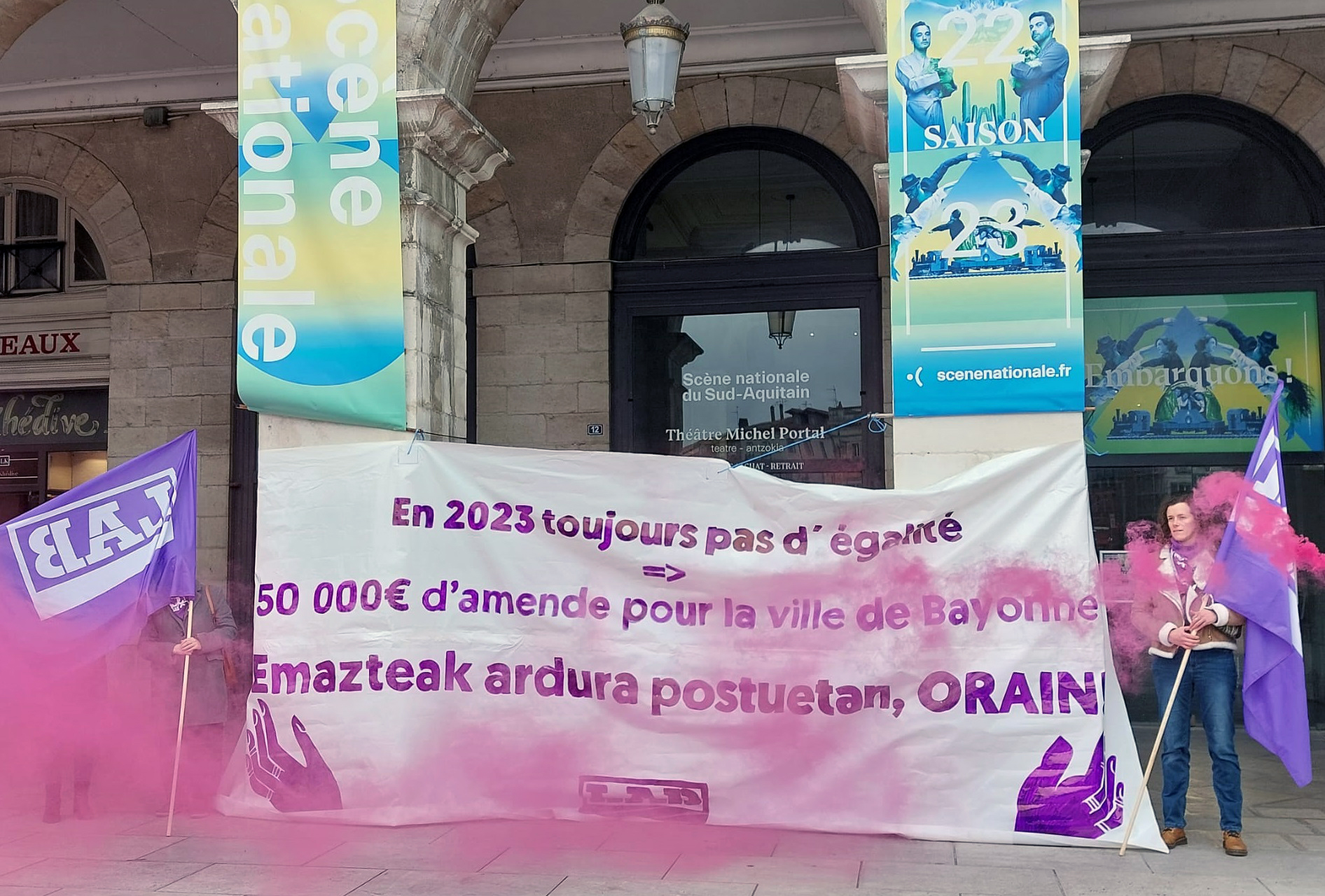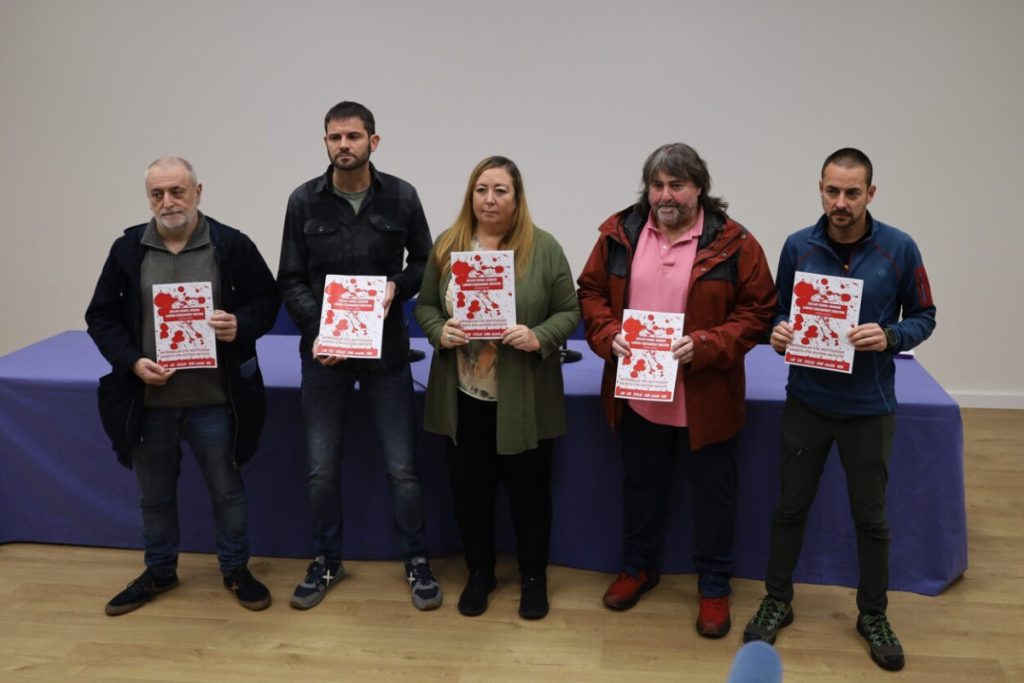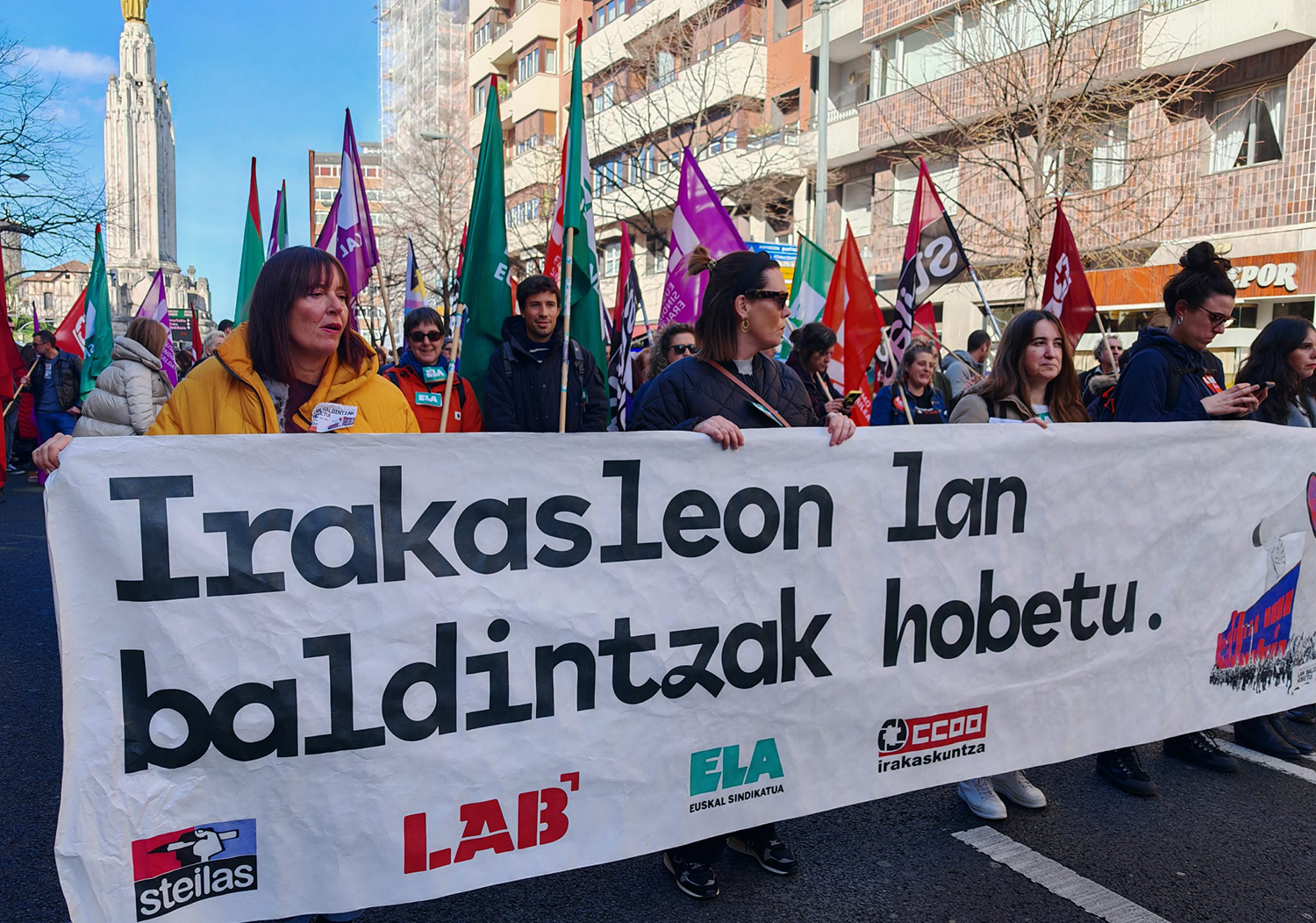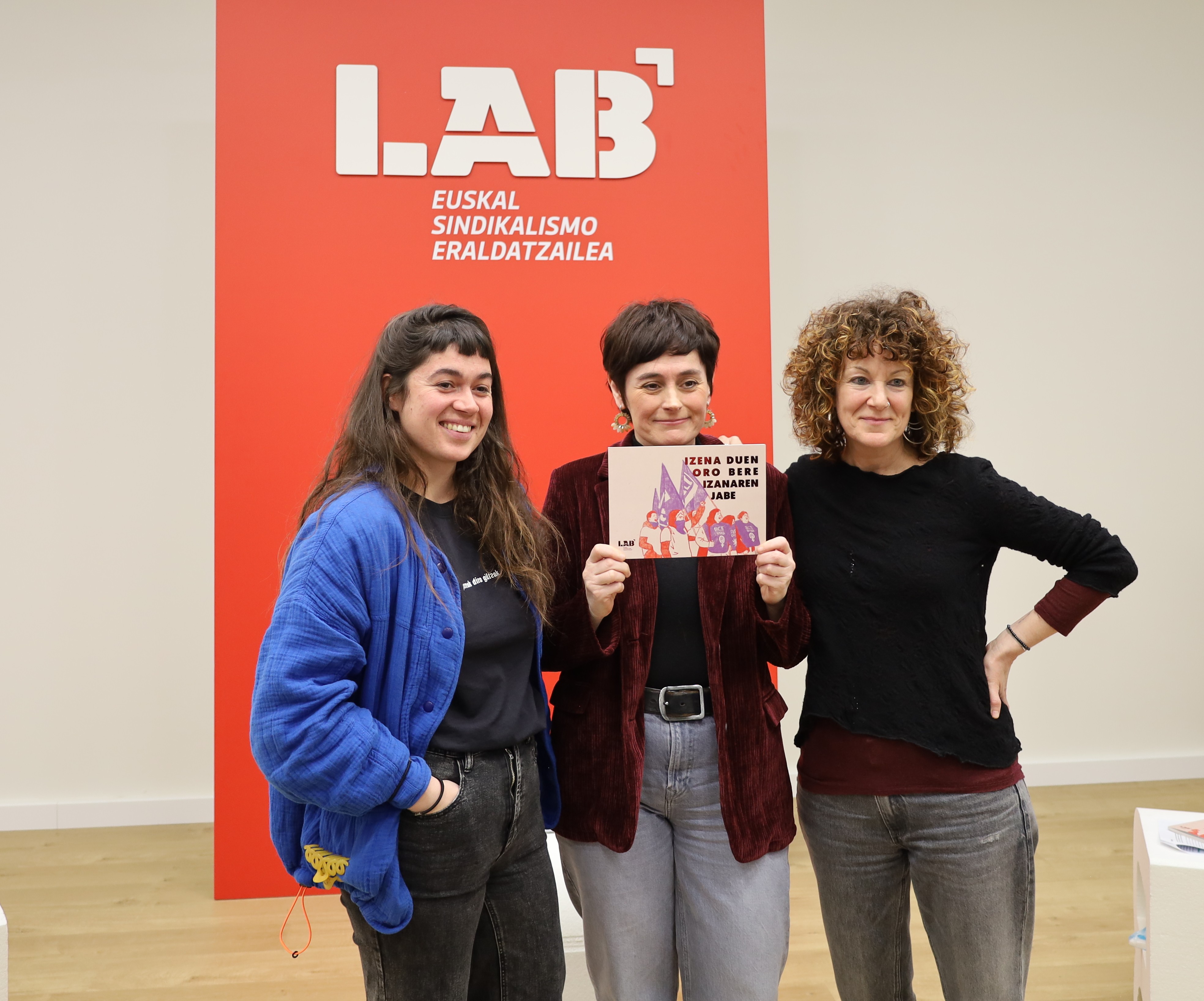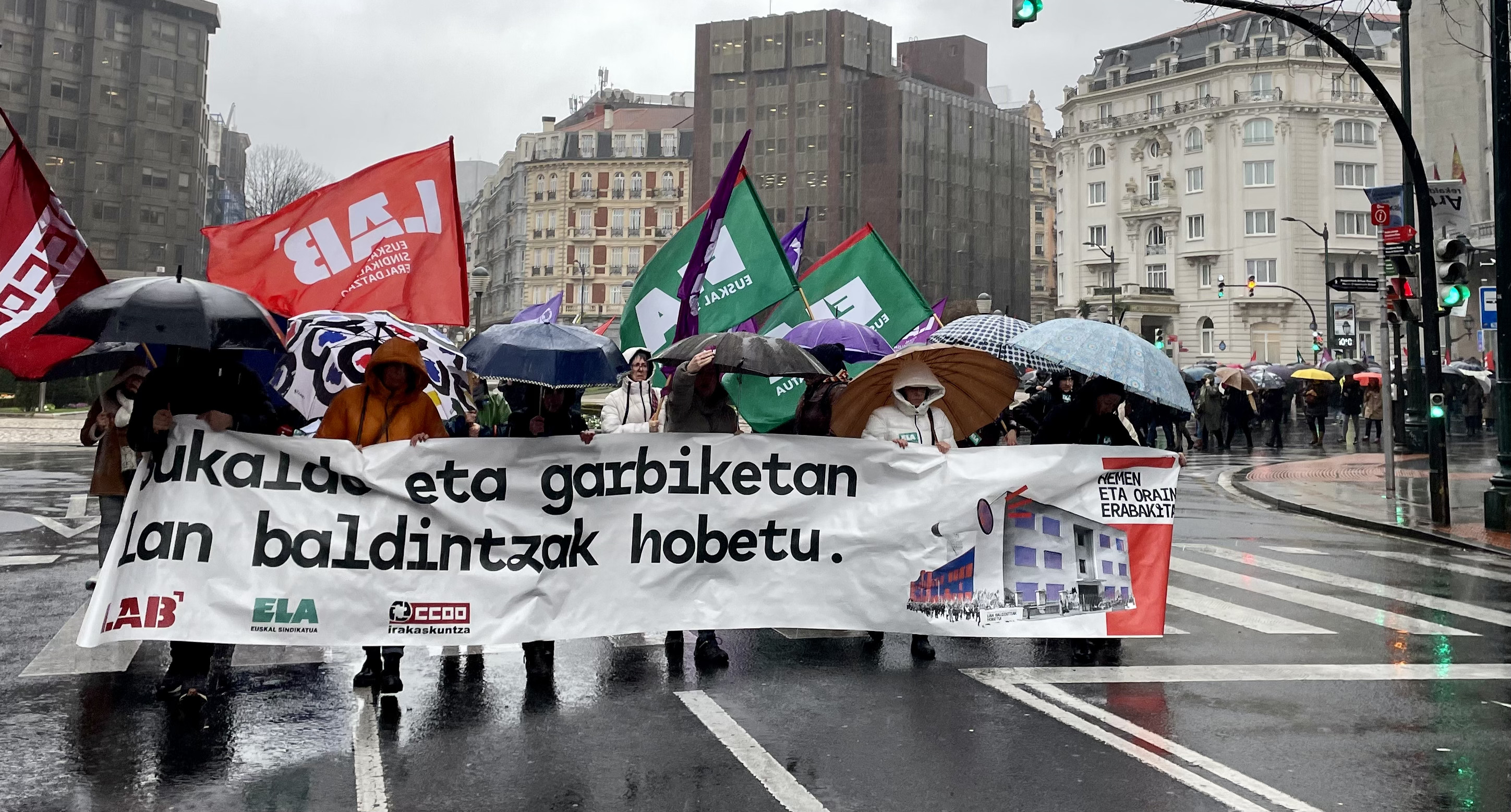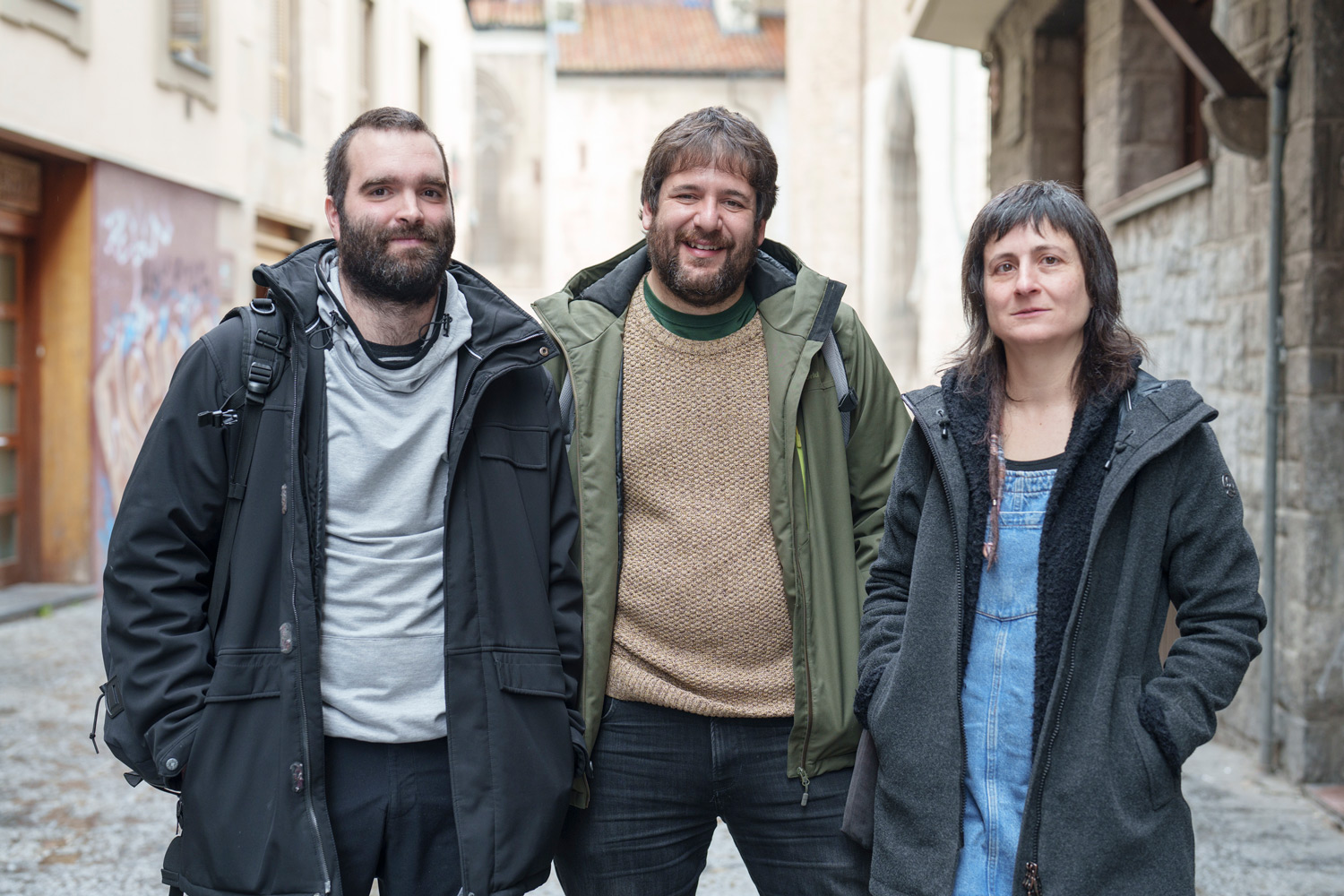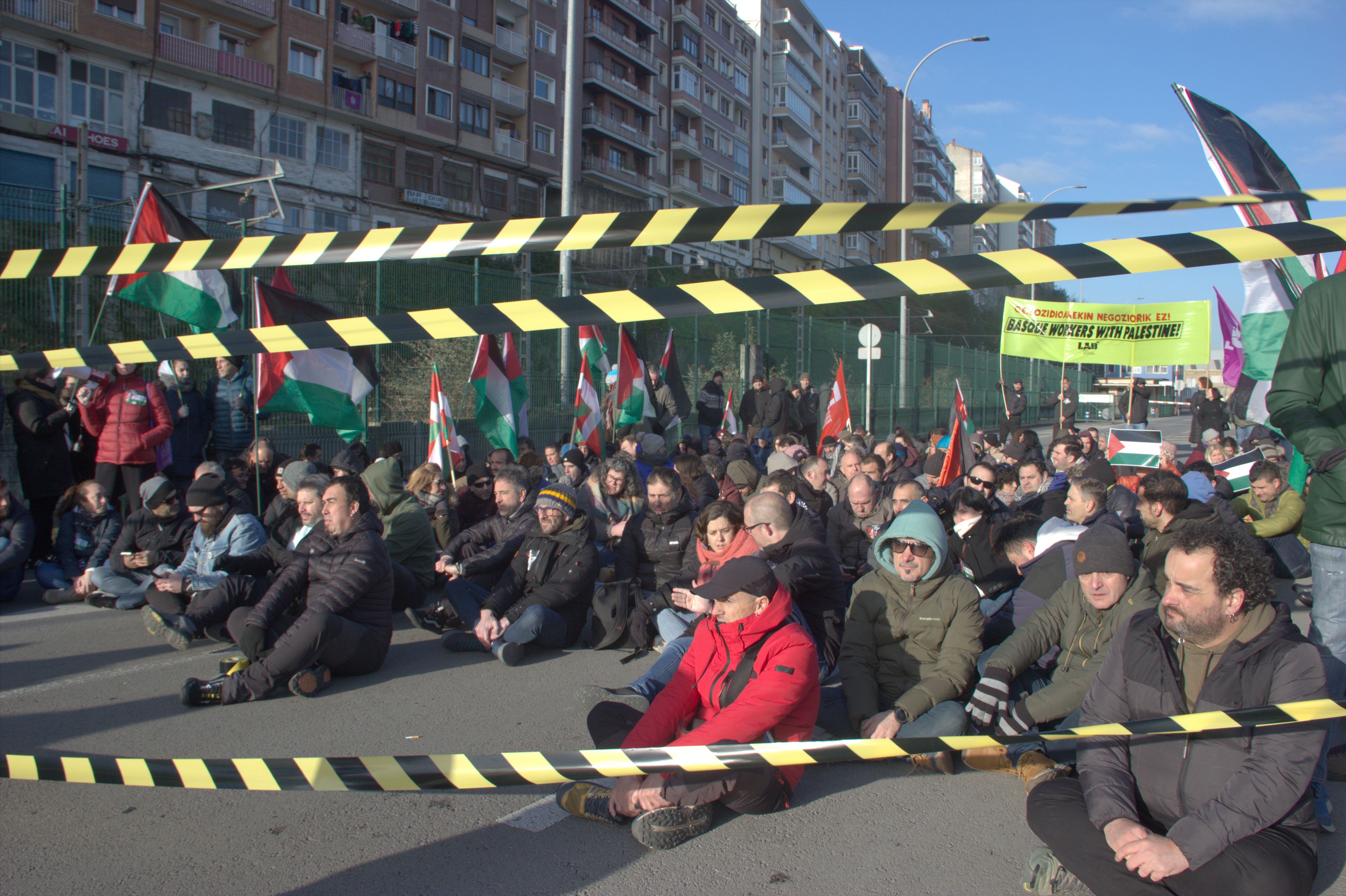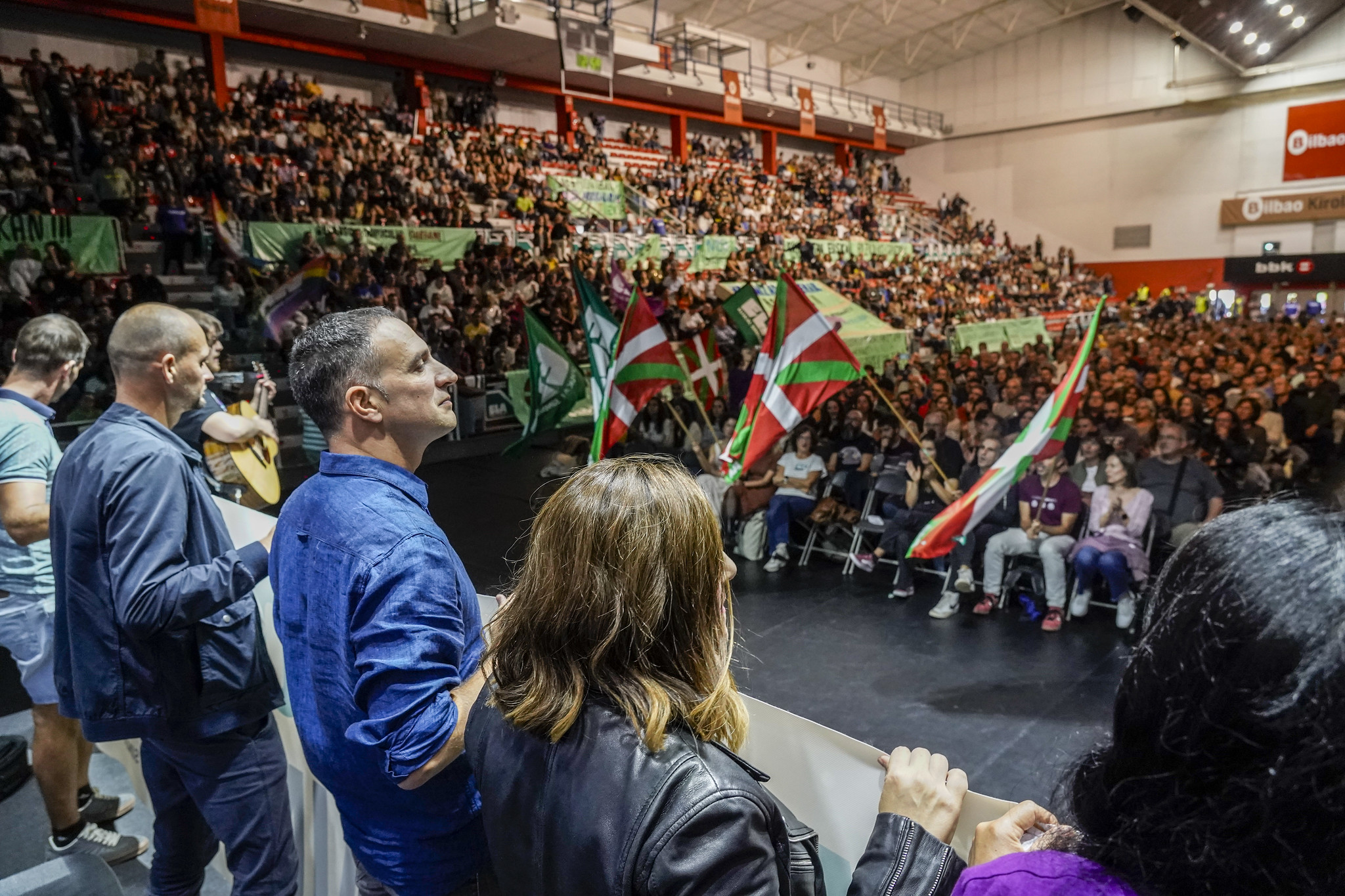LAB: “Welcoming migrant workers is a basic principle of class solidarity”
- The Ipar Hegoa Foundation publishes the second study on union power. In 2016 he published his first edition and, therefore, you can now see the evolution between 2016 and 2023. LAB General Coordinator Igor Arroyo and Ipar Hegoa Representative Edurne Larrañaga have appeared at a press conference to present the main conclusions.
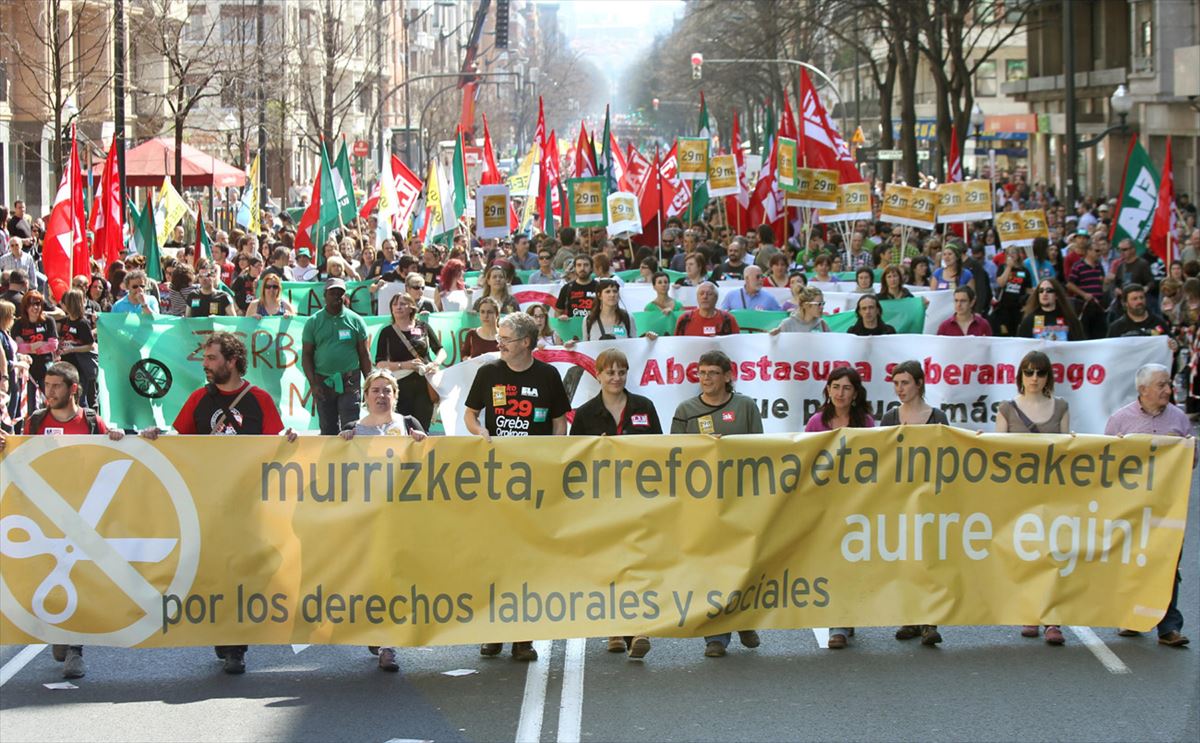
Faced with this situation, Igor Arroyo has highlighted four strategic challenges: to guarantee the generational shift also in trade unionism, to make a specific effort in the organization of migrant workers, to unify new areas and to develop a sovereign strategy that deactivates the staging of labour agreements.
Edurne Larrañaga has highlighted the most juicy data from this study, which he has described as "satisfactory".
Shaping the labour market. As in society, there is an objective ageing and an increase in migrants. Workers aged between 45 and 64 are the ones who are growing proportionately in the labour market. Specifically, people over 55 have risen from 10% to 23% in the last 25 years. The number of people born outside the Spanish state has increased to 10% in the labour market.
Conventions in the Basque Country. 85% of wage earners are covered by a collective agreement, but through the staging of labour agreements, Basque workers have become poorer. In 2023, there were 51,248 fewer workers than in 2012 under an agreement registered in the CAV. On the contrary, there are 44,641 more workers under a registered agreement at state level.
Strikes. The intensity of the strikes in Hego Euskal Herria has been significantly higher than that of the Spanish State: In 2023, for example, 3.39 strikes were carried out for every 10,000 employees in Hego Euskal Herria, compared to 0.43 in the Spanish State.
LAB syndicate. It is the second union representing Hego Euskal Herria, with 19.6% of the representation. Since 2016, the Basque economy has grown by 1.6 percentage points.
.jpg)
Union reality. The level of union in Hego Euskal Herria is high: four out of ten people are affiliated or have been affiliated with a union at some point. However, 41.7 per cent of workers are not yet affiliated with any union or union. In France and especially in Spain, trade unionism has lost muscle, but in Euskal Herria union power is greater in proportion. According to Arroyo, “the syndicalism that has opted for social dialogue has failed in both states, while the counter-union syndicalism has succeeded in Euskal Herria.” The characteristics of this trade unionism are, according to him, the counterpart, the socio-political character, independence, feminism, anti-razism and eco-socialism.
Migrant workers. The union will make a specific effort in the organisation of this staff: “More and more workers from other countries have overcome many obstacles and have reached the Basque Country. The basic principle of class solidarity is the active reception and fight against the discrimination suffered by these workers.” In this regard, Arroyo has valued the creation by LAB of the Secretariat Antirazista and the implementation of the first internal anti-razist plan.
More information on the report can be found on the LAB website.
.jpg)
Mahai Orokorreko sindikatuek salatu dute Gobernuak utzikeriaz jokatu duela ordezkaritza sindikalarekin negoziatzerakoan, horren adibidea da Estatutu berriaren negoziazioan ezarri duen blokeoa. Gobernua Mahai Orokorrean gai horiek guztiak negoziatzera esertzeko ahalegin ugari eta... [+]
LABek, STEILASek, ELAk eta CCOOek greba egutegi bateratua aurkeztu dute Bilbon: martxoaren 25, 26 eta 27, eta apirilaren 1 eta 2. Egungo hitzarmenak aldarrikatutako edukietatik urrun kokatzen direla adierazi dute, "bai sukaldearen eta garbiketaren kolektiboan zein... [+]
Nahiz eta Nazio Batuen Erakundeak (NBE) 1977an nazioarteko egun bat bezala deklaratu zuen eta haren jatorriaren hipotesi ezberdinak diren, Martxoaren 8aren iturria berez emazte langileen mugimenduari lotua da.
2024ko laneko ezbeharren txostena aurkeztu dute LAB • ESK • STEILAS • EHNE-etxalde eta HIRU sindikatuek aurtengo otsailean. Emaitza larriak bildu dituzte: geroz eta behargin gehiago hiltzen dira haien lanpostuetan.
Grebaren bezperan Hezkuntza Sailak “edukirik gabeko” mahaia deitu zuela eta sindikatu deitzaileak “errespetatu gabe” akordioa “antzezteko” gutxiengoa duten sindikatuak “erabili” nahi izan zituela salatu ostean, beste bi greba... [+]
Lehen aldia da Hego Euskal Herriko euskal gehiengo sindikalak armagintza industriaren moldaketaz taldean eta modu publikoan hitz egiten duena. Aurreko hilabeteotan mugimendu antimilitaristak bilera bana egin du lau sindikatuokin, produkzio militarra “sozialki... [+]








